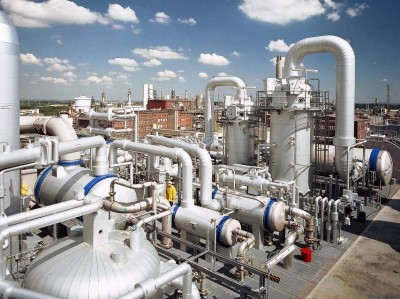European additive manufacturers affected by energy crisis, slow demand

In the past few months, almost all major local producers have announced contingency measures and production curbs, said the Swiss data provider.
“In addition to the escalating energy prices and consumer purchasing patterns indicating a switch to cheaper animal proteins, freight costs have dropped substantially, handing further cost advantages to manufacturers in Asia or the Americas,” Stefan Schmidinger, head of markets and strategy, Kemiex, told us.
DSM has partially absorbed the cost increases from the energy crisis, particularly for its European based production. However, the group just notified customers of the need for further price hikes, in some cases substantial increases, for its feed vitamins manufactured in Europe. It said the hikes were necessary to justify continuing production and to secure future supply.
Meanwhile, Adisseo has announced a temporary shutdown of Dl-methionine production at its Commentry site due to the higher energy and raw material costs, as well as demand stagnation.
This plant represents more than 10% of European methionine capacity, noted Kemiex.
The supplier has recorded long-term contract cost increases of +26% for propylene, +13% for methanol and +78% for sulphur compared to one year ago.
Adisseo has also put an action plan in place to reduce the production level temporarily and to reinforce a cost management approach to vitamin A output, which has seen an unprecedented price decline over the previous quarters.
BASF has initiated a cost savings program as well, with that initiative focused on Europe and Germany, in particular. The program will be implemented in 2023 and will run through to 2024. It targets annual cost savings of €500m, more than half of those to be realized at the Ludwigshafen site.
Chinese market
Turning to the Chinese market, and most ingredient producers there reported higher revenue in the third quarter and year-to-date 2022. This was mostly driven by stable volumes and higher prices.
"Meihua's year-to-date profits almost tripled compared to 2021, while China based vitamin C producer, CSPC Pharmaceutical, doubled net profits, for example," said Schmidinger.
Chinese producers are seeing higher operating costs versus 2021 though, he said. Supported by a weak Chinese Yuan, they are keen to protect sales volumes in a more difficult market compared to previous years, he added.
Global trade flows
Looking to trade flows, and the latest export data from China reveals interesting insights into demand slowdown during 2022, reported Kemiex.
Year-to-date exports of vitamin A were -33% lower than in 2021, led by -68% to North America, while the rate of vitamin E exports to Europe was at its lowest in six years.
Vitamin B5 exports from China are currently -43% below 2021 driven by a decline of 29-52% across all major regions, confirmed the Swiss data provider.
Regarding feed-grade amino acids, L-lysine recorded +29% higher year-to-date exports supported by new capacity build-up, Dl-Methionine exports are up +56%, with wide differences by region, and L-threonine exports increased +6% compared to 2021.
Capacity expansion projects
Chinese capacity expansion initiatives are in play.
Meihua continues to push forward on its 250'000 t/a L-threonine expansion project, while the Inner Mongolia Lingsheng Crop Technology’s 200’000 t/a Dl-methionine project is taking the first administrative steps towards authorization, said Kemiex.
Huachen Biochemical is planning to start commercial production for some forms of vitamin B5, vitamin B1 and beta-alanine in December, according to Kemiex.
Regulatory news
It has been a busy month in terms of feed additive regulatory developments, certainly from a European perspective.
“For vitamin B2, or riboflavin 98% and 80%, an interesting development occurred - EFSA just re-evaluated a product from major Chinese producer, Hubei Guangji Pharmaceutical, which provided the EU food and feed risk assessor with new efficacy and safety data.
“Despite some missing data and risk of denial, market insiders expect a market authorization within the next six months. Guangji’s products are widely used globally but cannot, to date, be used within the EU,” commented Schmidinger.
EFSA has also prepared the ground for L‐lysine authorizations submitted by Metex NoovistaGo, as well as Fufeng with the support of local specialist Barentz Animal Nutrition.








